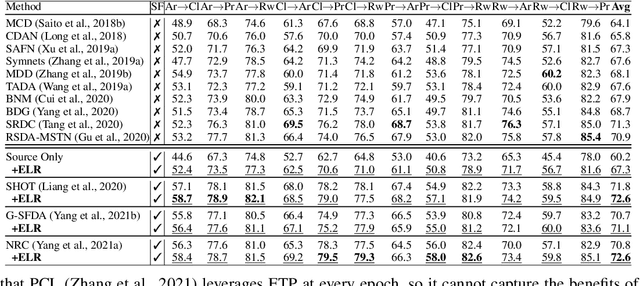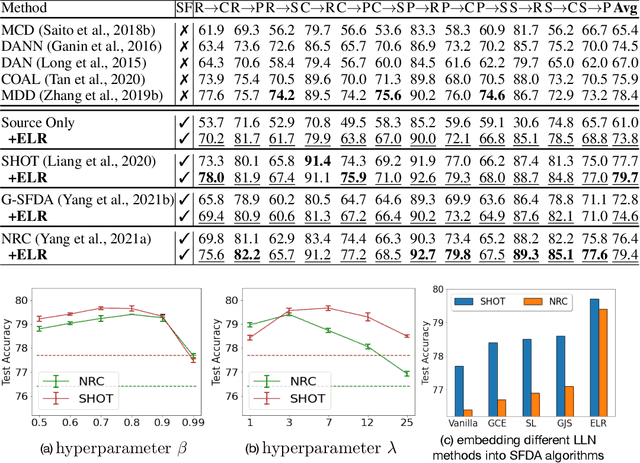A. Ian McLeod
When Source-Free Domain Adaptation Meets Learning with Noisy Labels
Jan 31, 2023



Abstract:Recent state-of-the-art source-free domain adaptation (SFDA) methods have focused on learning meaningful cluster structures in the feature space, which have succeeded in adapting the knowledge from source domain to unlabeled target domain without accessing the private source data. However, existing methods rely on the pseudo-labels generated by source models that can be noisy due to domain shift. In this paper, we study SFDA from the perspective of learning with label noise (LLN). Unlike the label noise in the conventional LLN scenario, we prove that the label noise in SFDA follows a different distribution assumption. We also prove that such a difference makes existing LLN methods that rely on their distribution assumptions unable to address the label noise in SFDA. Empirical evidence suggests that only marginal improvements are achieved when applying the existing LLN methods to solve the SFDA problem. On the other hand, although there exists a fundamental difference between the label noise in the two scenarios, we demonstrate theoretically that the early-time training phenomenon (ETP), which has been previously observed in conventional label noise settings, can also be observed in the SFDA problem. Extensive experiments demonstrate significant improvements to existing SFDA algorithms by leveraging ETP to address the label noise in SFDA.
On Learning Contrastive Representations for Learning with Noisy Labels
Mar 25, 2022



Abstract:Deep neural networks are able to memorize noisy labels easily with a softmax cross-entropy (CE) loss. Previous studies attempted to address this issue focus on incorporating a noise-robust loss function to the CE loss. However, the memorization issue is alleviated but still remains due to the non-robust CE loss. To address this issue, we focus on learning robust contrastive representations of data on which the classifier is hard to memorize the label noise under the CE loss. We propose a novel contrastive regularization function to learn such representations over noisy data where label noise does not dominate the representation learning. By theoretically investigating the representations induced by the proposed regularization function, we reveal that the learned representations keep information related to true labels and discard information related to corrupted labels. Moreover, our theoretical results also indicate that the learned representations are robust to the label noise. The effectiveness of this method is demonstrated with experiments on benchmark datasets.
 Add to Chrome
Add to Chrome Add to Firefox
Add to Firefox Add to Edge
Add to Edge